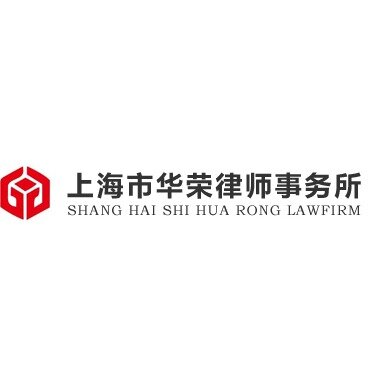Best Art & Cultural Property Law Lawyers in China
Share your needs with us, get contacted by law firms.
Free. Takes 2 min.
Or refine your search by selecting a city:
List of the best lawyers in China
About Art & Cultural Property Law in China
Art & Cultural Property Law in China is a specialized legal field that deals with the regulation and protection of cultural heritage, art objects, and artifacts. This area of law encompasses various aspects, including the preservation of cultural heritage, regulation of art trade, and prevention of illicit trafficking of cultural property. The legal framework is established to safeguard China's rich and diverse cultural heritage, addressing issues related to ownership, export, import, and restitution of cultural and artistic items.
Why You May Need a Lawyer
There are several circumstances where an individual or organization might require legal assistance in Art & Cultural Property Law in China:
- Disputes over ownership of art or cultural artifacts.
- Legal challenges concerning the export or import of cultural property.
- Inequalities or fraud in art transactions.
- Registration and documentation of either private collections or museum artifacts.
- Compliance with regulations regarding the preservation of cultural assets.
- Concerns over the authenticity and provenance of artworks.
- Navigating agreements for the exhibition or loan of cultural property.
- Litigation involving intellectual property rights over artwork.
Local Laws Overview
Chinese Art & Cultural Property Law is grounded in several national laws and regulations designed to protect cultural heritage:
- The Cultural Relics Protection Law: Enacted to protect cultural relics, it regulates all aspects of protection, utilization, and management of cultural relics in China.
- Regulations on the Protection and Management of Museums: Provides guidelines on the establishment and operation of museums, ensuring they meet certain standards for safeguarding artifacts.
- The Customs Law: Includes provisions for the import and export control of cultural property to prevent illicit trade and trafficking.
- The Intellectual Property Law: Relevant to the art field for issues such as copyright and trademark protection of artistic works.
Frequently Asked Questions
What constitutes cultural property in Chinese law?
Cultural property in China is defined as items of historical, artistic, or scientific value, which may include relics, artwork, ancient documents, and historical architecture.
Can cultural relics be privately owned in China?
Yes, individuals can own cultural relics that are not categorized as national treasures, but such ownership is subject to strict regulation to ensure preservation.
Are there specific export restrictions for art in China?
Yes, China has stringent rules controlling the export of cultural property, aiming to prevent illicit trafficking and loss of national heritage.
How is authenticity regulated in art transactions?
Determining authenticity often involves expert appraisal and verification processes supported by legal documentation, especially for high-value art transactions.
What roles do museums play in cultural property law?
Museums are crucial for the conservation and public exhibition of cultural property. They must adhere to specific regulations to ensure the protection and preservation of the artifacts they house.
Is there legal recourse for stolen art?
Yes, Chinese law provides mechanisms for restitution of stolen or illegally exported cultural property, often involving international cooperation.
How does intellectual property law affect artists in China?
Intellectual property laws protect the rights of artists over their creations, granting them control over reproduction and use of their works.
What should I do if I suspect a cultural relic is counterfeit?
Engage with legal and art appraisal experts to assess the item, and report any suspected forgeries to the relevant authorities for investigation.
What are the consequences of violating cultural property laws in China?
Violations can result in severe penalties, including fines, confiscation of the artifacts, and criminal charges, depending on the offense's severity.
Who enforces cultural property laws in China?
The enforcement is primarily overseen by the State Administration of Cultural Heritage, supported by law enforcement and custom departments.
Additional Resources
For more information or assistance, consider reaching out to the following resources:
- State Administration of Cultural Heritage
- Ministry of Culture and Tourism
- China Association of Auctioneers
- Local cultural relics bureaus
- International Council of Museums (ICOM) - China National Committee
Next Steps
If you require legal assistance in Art & Cultural Property Law, consider taking the following steps:
- Identify your specific legal needs and issues in the realm of art and cultural property.
- Research and consult with legal professionals specialized in Art & Cultural Property Law in China.
- Gather all necessary documentation and information related to your case or query.
- Schedule consultations with potential legal representatives to discuss their approach and experience.
- Engage a lawyer or law firm that best meets your needs for legal guidance and representation.
Lawzana helps you find the best lawyers and law firms in China through a curated and pre-screened list of qualified legal professionals. Our platform offers rankings and detailed profiles of attorneys and law firms, allowing you to compare based on practice areas, including Art & Cultural Property Law, experience, and client feedback.
Each profile includes a description of the firm's areas of practice, client reviews, team members and partners, year of establishment, spoken languages, office locations, contact information, social media presence, and any published articles or resources. Most firms on our platform speak English and are experienced in both local and international legal matters.
Get a quote from top-rated law firms in China — quickly, securely, and without unnecessary hassle.
Disclaimer:
The information provided on this page is for general informational purposes only and does not constitute legal advice. While we strive to ensure the accuracy and relevance of the content, legal information may change over time, and interpretations of the law can vary. You should always consult with a qualified legal professional for advice specific to your situation.
We disclaim all liability for actions taken or not taken based on the content of this page. If you believe any information is incorrect or outdated, please contact us, and we will review and update it where appropriate.
Browse art & cultural property law law firms by city in China
Refine your search by selecting a city.















